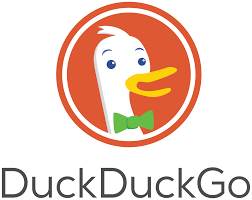DuckDuckGo and Your Privacy

Troubling to a majority of the population, their internet activity is being watched and recorded continuously every time they log on. There is a whole other world behind our computer screens most people are unaware of.
Google, Yahoo!, Mozilla, and other companies of major search engines are selling the information they receive from their users without their knowledge, putting their users’ personal data at risk. This practice is however very lucrative, making billions in the process. “Surveillance is the business of the internet,” claims cybersecurity expert Bruce Schneier, a fellow with the Berkman Klein Center for Internet & Society and the Belfer Center for Science and International Affairs at Harvard Kennedy School. As a result, internet privacy is becoming almost non-existent. There is, however, a possible solution to this problem.
Since 2008, the search engine DuckDuckGo has protected user privacy and prevented filter bubbles. Filter bubbles are the search results that are created from users’ prior searches and preferences creating a bias in future search results. Data-tracking affects advertisements as well and skews what news is seen first.
There is a possibility for concern considering the fact that most of modern society is influenced by the internet.
Despite Google having a near monopoly on the market, they consider DuckDuckGo to be a top competitor. DuckDuckGo possesses the flexibility that other giants in the industry lack. Its services are adequate and offer refuge through private browsing. Some have referred to it as a return to what the internet was like in the early 2000’s.
As of right now, there are nearly 400 million users.



